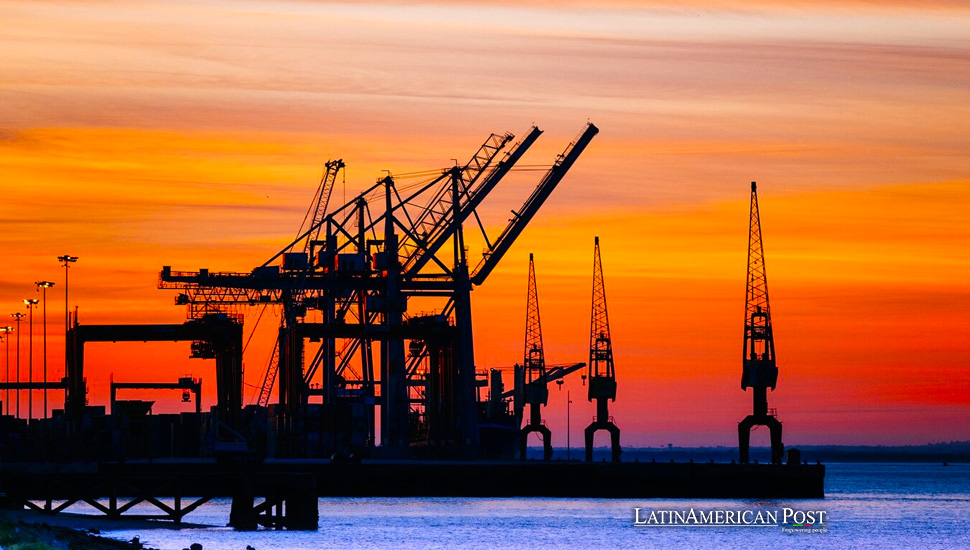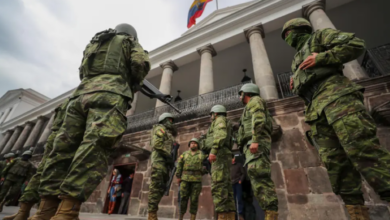Potential Renewal of U.S. Sanctions Threaten Venezuela’s Oil Sector and Economic Recovery

The potential reimposition of U.S. sanctions on Venezuela’s oil and gas sectors looms large, signaling significant challenges for the nation’s economy, including reduced oil revenue, hindered energy investments, and the risk of domestic fuel shortages, according to industry analysts and executives.
Impending Sanctions Threaten Venezuela’s Economic Resurgence
In a move that could reverse the recent uptick in Venezuela’s economic fortunes, the United States is considering the reimposition of sanctions on the South American nation’s oil and gas sectors. This development comes amid escalating tensions between Washington and Caracas, particularly over concerns regarding the fairness of Venezuela’s upcoming presidential election. The implications of such sanctions are far-reaching, affecting Venezuela’s ability to generate revenue from its oil exports and the broader landscape of global energy markets.
The backdrop to this unfolding scenario is a complex tapestry of political and economic dynamics. In 2019, the U.S. first imposed oil sanctions on Venezuela, significantly curtailing the OPEC country’s primary revenue source. These measures were part of a broader strategy to pressure President Nicolas Maduro’s administration into adopting democratic reforms. However, in the wake of events last October, Washington granted sanctions relief in acknowledgment of an election agreement, promising a fair presidential election process.
Economic Outlook Under Threat: The Risk of Renewed Sanctions
This relief was expected to breathe new life into Venezuela’s struggling economy. Projections by Caracas-based consultancy Ecoanalitica suggested that Venezuela’s oil revenue could surge from approximately $12 billion in 2023 to as much as $20 billion this year. The anticipated increase was attributed to more significant exports of crude and petrochemicals to cash-paying customers worldwide, from the United States to India. Yet, this optimistic outlook is now under threat as the U.S. signals a readiness to reverse its easing of sanctions, citing the Venezuelan top court’s decision to uphold a ban against leading opposition candidate Maria Corina Machado.
The potential consequences of renewed sanctions are manifold. Firstly, Venezuela’s ability to collect cash from its oil exports would be severely hampered, undermining its economic stability. The oil sector has been a lifeline for Venezuela, and any disruption in its operations could significantly decrease state revenue. This decrease, in turn, could stall new energy investments, further deteriorating the country’s infrastructure and production capabilities.
Moreover, the risk of domestic fuel scarcity becomes a stark reality under renewed sanctions. Despite its vast oil reserves, Venezuela has previously grappled with fuel shortages, mainly due to mismanagement and lack of investment in its refining capacity. The reintroduction of U.S. sanctions would likely exacerbate these challenges, affecting everyday Venezuelans’ lives and the overall economy.
Diplomatic Balancing Act: U.S. Engagement with Venezuela
While the U.S. may continue authorizing debt repayment deals to international oil companies like Chevron, Eni, Repsol, and Maurel & Prom to maintain some level of engagement with Venezuela, more is needed to sustain or expand output in the long term. The delicate balance of maintaining diplomatic pressure while avoiding a complete severance of ties with Venezuela poses a significant policy challenge for Washington.
The easing of sanctions in November 2022, particularly the special license granted to Chevron, marked a significant shift in U.S. policy towards Venezuela. It allowed for a modest revival of the Venezuelan oil industry, with PDVSA and its joint venture partners increasing oil exports by almost 13% last year. This revival was crucial for Venezuela’s economy and the global oil market, providing a degree of stability and predictability.
Venezuela’s response to the threat of renewed sanctions has been defiant. Oil Minister Pedro Tellechea has stated that the country is prepared to counter the effects of any sanctions, highlighting the potential impact on the U.S. itself, which could face reduced oil exports from Venezuela. This assertion underscores the interconnectedness of global energy markets and the potential for ripple effects beyond Venezuela’s borders.
A Test for Global Relations and Energy Policy
The situation is a testament to the broader geopolitical dynamics in international relations and global energy policy. The U.S. decision to potentially reimpose sanctions on Venezuela is not merely a bilateral issue but one that has implications for global oil supply, prices, and the stability of energy markets. It also raises questions about the effectiveness of sanctions as a tool for achieving political objectives, particularly in contexts where the humanitarian impacts can be profound.
As the situation evolves, the international community will watch closely, particularly countries reliant on Venezuelan oil. The outcome of this standoff will determine the future of Venezuela’s oil sector and set a precedent for how global powers engage with nations rich in natural resources but plagued by political and economic instability.
Also read: Venezuela’s Oil Production Rises, Aiming Beyond a Million Barrels in 2024
The potential reimposition of U.S. sanctions on Venezuela’s oil and gas sectors is a development fraught with economic, political, and humanitarian implications. While intended to pressure the Maduro administration towards fair electoral practices, the sanctions threaten to undermine Venezuela’s economic recovery, exacerbate fuel shortages, and destabilize global energy markets. The coming months will be critical in determining the trajectory of Venezuela’s oil sector and its impact on the global stage, highlighting the delicate balance between political objectives and economic realities in international relations.





